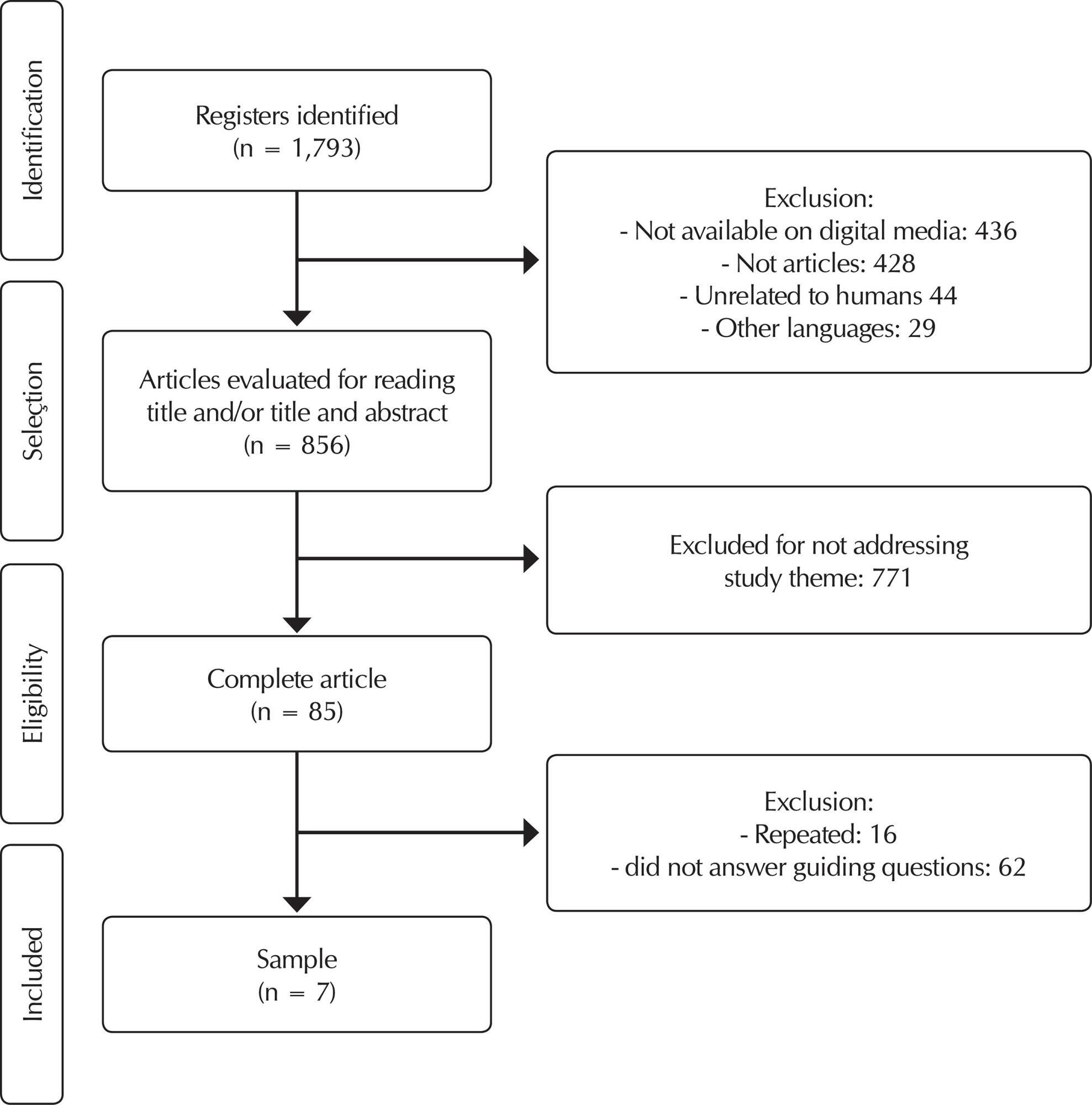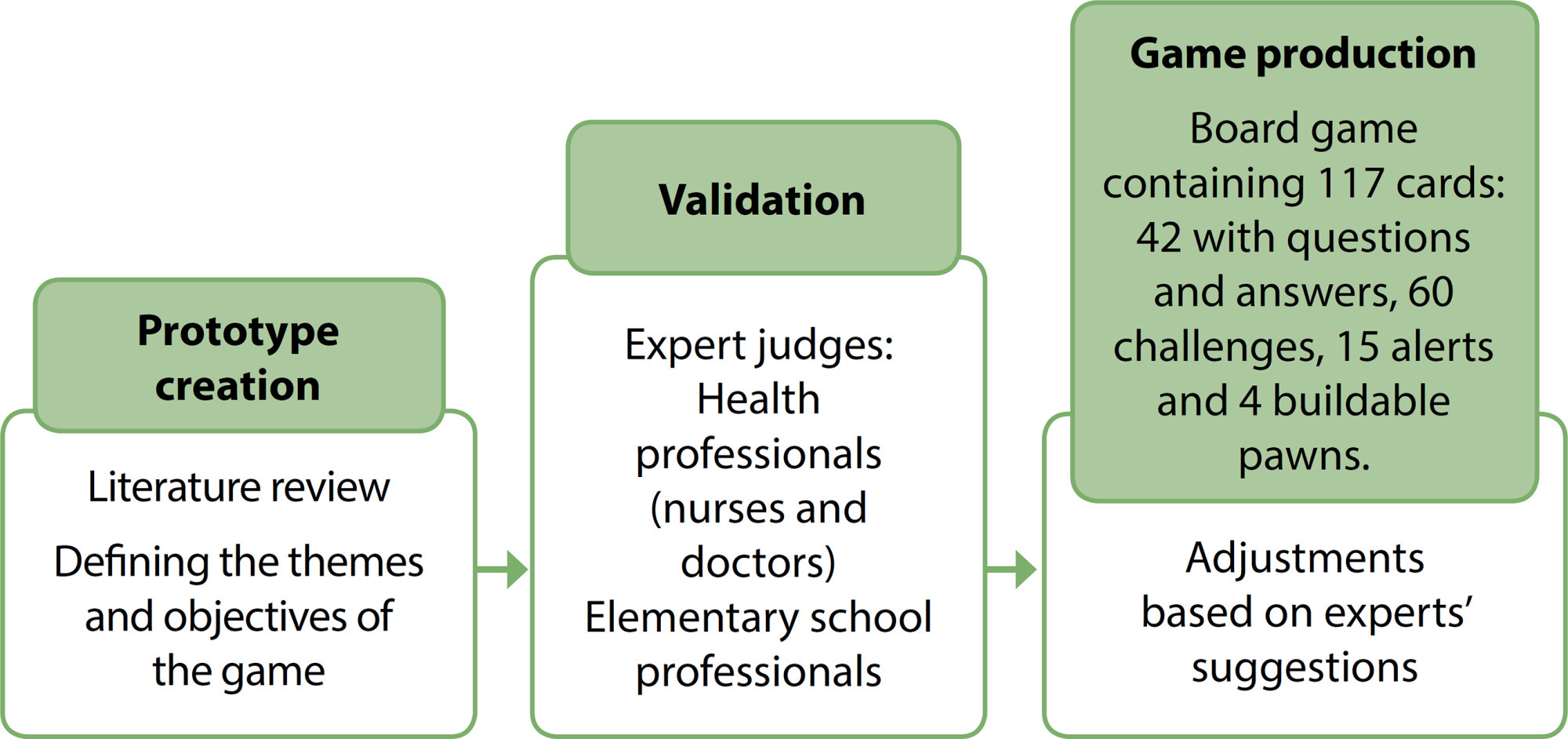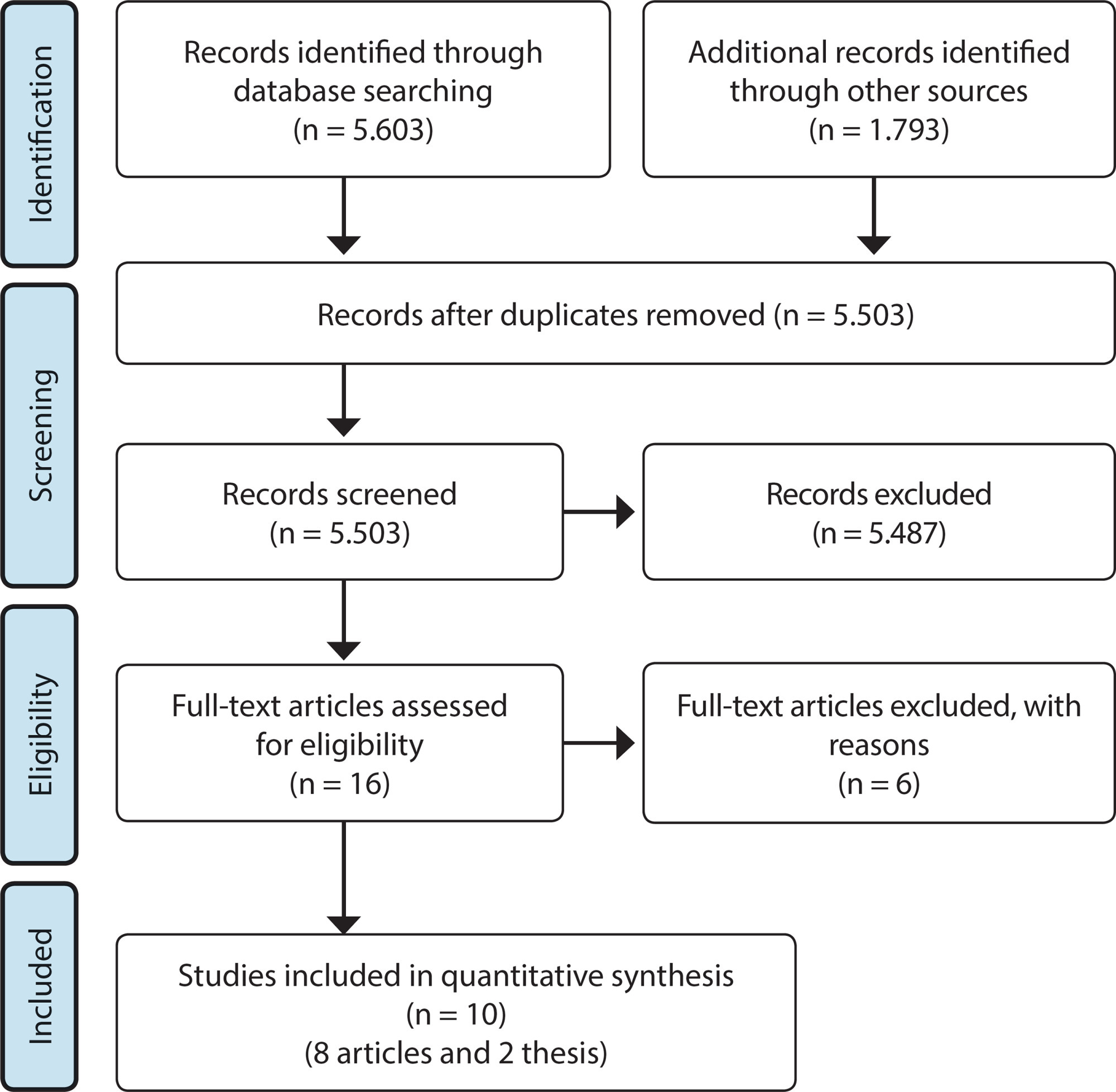-
REFLECTION01-01-2017
Theory of communicative action: a basis for the development of critical thinking
Revista Brasileira de Enfermagem. 2017;70(6):1343-1346
Abstract
REFLECTIONTheory of communicative action: a basis for the development of critical thinking
Revista Brasileira de Enfermagem. 2017;70(6):1343-1346
DOI 10.1590/0034-7167-2016-0383
Views0See moreABSTRACT
Reflections on some assumptions of the theory of Communicative Action and the development of Critical Thinking in the context of training students in undergraduate nursing courses. The perspective is based on concepts of Jürgen Habermas, as a possibility for the development of critical thinking among the students of these courses. Communication is therefore understood as inherent in the training of nurses in a continuous, dynamic, dialogical process, with interventions that are related to the context of the students and that have meaning for them, in order to contribute to the promotion of Critical Thinking.

-
REFLECTION01-01-2017
Bath for dependent patients: theorizing aspects of nursing care in rehabilitation
Revista Brasileira de Enfermagem. 2017;70(6):1337-1342
Abstract
REFLECTIONBath for dependent patients: theorizing aspects of nursing care in rehabilitation
Revista Brasileira de Enfermagem. 2017;70(6):1337-1342
DOI 10.1590/0034-7167-2016-0258
Views0See moreABSTRACT
Objective:
to produce a reflective essay on what has been produced in relation to bath as a procedure related to nursing care and diagnosis for dependent patients undergoing mediate and immediate rehabilitation processes after a traumatic event.
Method:
discursive, reflective study supported by classical content analysis consisting of the following stages: a) reading of the texts in their most comprehensive form; b) emphasizing the relevant elements produced about bathing; c) reflection on texts and what is produced about bathing.
Results:
the texts point out to three categories for nursing practice and reflection: Meaning to patients on the purposes of bathing; Representation for nurses in the work process; Representation for nurses in the management of care and nursing care planning.
Conclusion:
the reflection points out understandings on bathing as a care focused on the autonomy of nursing rehabilitation patients, requiring further investigations.

-
REVIEW01-01-2017
Clinical indicators for nursing diagnosis Ineffective protection in adolescents with cancer
Revista Brasileira de Enfermagem. 2017;70(6):1330-1336
Abstract
REVIEWClinical indicators for nursing diagnosis Ineffective protection in adolescents with cancer
Revista Brasileira de Enfermagem. 2017;70(6):1330-1336
DOI 10.1590/0034-7167-2016-0571
Views0See moreABSTRACT
Objective:
To investigate scientific evidence related to the term protection and clinical indicators and etiologic factors for nursing diagnosis Ineffective protection in adolescents with cancer.
Method:
Integrative literature review in the databases of Scopus, Web of Science, National Library of Medicine and National Institutes of Health (PubMed) and Cochrane; by intersection of the descriptors protection and childhood cancer, which resulted in seven articles. These were insufficient for a comprehension of the term protection and aspects related to its impairment, therefore it was necessary to include a further three reference books.
Results:
Five clinical indicators and three etiologic factors associated to Ineffective protection were identified some of which were not cited in NANDA-International.
Conclusions:
There are clinical and etiologic factors important for the identification of ineffective protection in adolescents with cancer.

-
REVIEW01-01-2017
Supported self-care for children and adolescents with chronic disease and their families
Revista Brasileira de Enfermagem. 2017;70(6):1318-1329
Abstract
REVIEWSupported self-care for children and adolescents with chronic disease and their families
Revista Brasileira de Enfermagem. 2017;70(6):1318-1329
DOI 10.1590/0034-7167-2016-0553
Views0See moreABSTRACT
Objective:
analyze the scientific production between 2006 and 2015 on strategies for supported self-care by children and adolescents with chronic disease and their families.
Method:
integrative review of the literature conducted July and August 2016 in the databases: BDENF, LILACS, IBECS, ADOLEC, MEDLINE/PubMed and SCIELO. The 27 selected studies were analyzed and categorized into the five pillars of supported self-care: evaluation, counseling, agreement, care and accompaniment.
Results:
only two studies covered all five pillars, evaluation was considered most, but accompaniment was essential for adherence to the therapeutics of the goal plan. There was a prevalence of actions to evaluate the emotional state of the child/adolescent/family and technological interventions to empower the individual in self-care.
Final considerations:
these actions are concentrated in countries with health systems directed to the health needs of people with chronic disease. In Brazil, this is still incipient, since the actions are focused on exacerbation.
-
REVIEW01-01-2017
Systemic Arterial Hypertension in people living with HIV/AIDS: integrative review
Revista Brasileira de Enfermagem. 2017;70(6):1309-1317
Abstract
REVIEWSystemic Arterial Hypertension in people living with HIV/AIDS: integrative review
Revista Brasileira de Enfermagem. 2017;70(6):1309-1317
DOI 10.1590/0034-7167-2016-0416
Views0See moreABSTRACT
Objective:
To analyze scientific productions about the relationship between HIV and Systemic Arterial Hypertension (SAH) in people living with HIV/AIDS (PLWHA).
Method:
Integrative literature review in six databases, held in March 2016. “AIDS” and “hypertension” were the keywords used in Portuguese, English and Spanish languages. We found 248 articles and selected 17. The categories formulated were “prevalence of SAH in PLWHA,” “risk factors for SAH in PLWHA” and “adverse events of antiretroviral therapy (ART) that contribute to HAS.”
Results:
There is no consensus whether HIV and ART influence the SAH development, but there are several risk factors for SAH among PLWHA. It was observed that protease inhibitors medicines influence SAH the most.
Conclusion:
Guidelines for SAH prevention must be performed in all individuals, however, in PLWHA, they must focus on characteristic risk factors of this population.

-
REVIEW01-01-2017
Managing febrile neutropenia in adult cancer patients: an integrative review of the literature
Revista Brasileira de Enfermagem. 2017;70(6):1301-1308
Abstract
REVIEWManaging febrile neutropenia in adult cancer patients: an integrative review of the literature
Revista Brasileira de Enfermagem. 2017;70(6):1301-1308
DOI 10.1590/0034-7167-2016-0247
Views0See moreABSTRACT
Objective:
To analyze the interventions performed by health professionals with a view to managing chemotherapy-induced febrile neutropenia.
Method:
Integrative literature review, the sample of 12 primary articles was selected from the following databases: LILACS, SciELO, BVS, PubMed, CINAHL and Web of Science.
Results:
There was a prevalence of studies, realized by doctors, focused on pharmacological treatment and on the association of methods for greater diagnostic accuracy of febrile neutropenia. A study was found on pharmaceutical management regarding antibiotic dosing efficacy and a study indicating that nurses could contribute to the identification of elderly patients who would benefit from prophylactic use of growth factor.
Conclusion:
There was a shortage of studies involving the participation of other health professionals, besides the doctors, and a knowledge gap regarding interprofessional practice in the management of interventions specific to their area of specialism, joint interventions and non-pharmacological interventions.

-
CASE STUDY01-01-2017
Neonatal appendicitis: a survival case study
Revista Brasileira de Enfermagem. 2017;70(6):1296-1300
Abstract
CASE STUDYNeonatal appendicitis: a survival case study
Revista Brasileira de Enfermagem. 2017;70(6):1296-1300
DOI 10.1590/0034-7167-2016-0610
Views0See moreABSTRACT
Objective:
To report a case of neonatal appendicitis in a children’s hospital in southern Brazil, demonstrating the impact on neonatal survival.
Method:
Case study with data collection from medical records, approved by the Institution and Ethics Committee for Research with Human Beings.
Results:
The clinical picture is initially characterized by food intolerance, evolving to hypoactivity, alteration of vital signs and septicemia due to intestinal perforation. Management is exclusively surgical, since no case described in the literature was diagnosed preoperatively and the findings usually point to acute abdomen.
Conclusion:
A focused clinical surveillance should be established when the infant presents peritoneal irritation. Follow-up of the evolution and the worsening of the symptoms by nurses, as part of the care team in partnership with the medical team, enables an early surgical intervention, thereby avoiding complications such as septicemia and death.
-
CASE STUDY01-01-2017
Use of virtual reality for treating burned children: case reports
Revista Brasileira de Enfermagem. 2017;70(6):1291-1295
Abstract
CASE STUDYUse of virtual reality for treating burned children: case reports
Revista Brasileira de Enfermagem. 2017;70(6):1291-1295
DOI 10.1590/0034-7167-2016-0575
Views0See moreABSTRACT
Objective:
To report the use of virtual reality (VR) in pain intensity during dressing change of two burned children hospitalized in a Burn Treatment Center (BTC) in Southern Brazil.
Method:
Case report on the use of VR during dressing change of two burned children hospitalized in a BTC, from May to July 2016. For assessing pain, a facial pain rating scale was applied at four times: just before the dressing, during the dressing without the use of VR, during the dressing with the VR, and after the use of VR.
Results:
The use of goggles was easy to apply and well-accepted by the children, and also had a relevant effect reducing pain.
Conclusion:
VR can become an important nonpharmacological method for treating pain in burned children.

-
08-20-2021
Validation of an educational game about first aid for schoolchildren
Revista Brasileira de Enfermagem. 2021;74(6):e20201107
Abstract
Validation of an educational game about first aid for schoolchildren
Revista Brasileira de Enfermagem. 2021;74(6):e20201107
DOI 10.1590/0034-7167-2020-1107
Views0See moreABSTRACT
Objectives: to validate the content and appearance of an educational game about first aid for schoolchildren with experts in education and health.
Methods: this is a methodological, quantitative and descriptive research, carried out using the Delphi technique, using an online collection instrument, covering 55 items of the game. Content and appearance assessment was performed by 26 judges. The data were analyzed using Content Validity index.
Results: the final prototype is presented in a board format, composed of four buildable pawns and 117 cards between questions, alerts and challenges. Overall Content Validity index of 0.95 and greater than 0.8 was obtained for all items in two Delphi rounds.
Conclusions: the educational game validated by experts is a pedagogical tool for teaching first aid to schoolchildren as an option to traditional educational practices.

-
REFLECTION12-21-2020
War against the COVID-19 pandemic: reflection in light of Florence Nightingale’s nursing theory
Revista Brasileira de Enfermagem. 2020;73:e20200371
Abstract
REFLECTIONWar against the COVID-19 pandemic: reflection in light of Florence Nightingale’s nursing theory
Revista Brasileira de Enfermagem. 2020;73:e20200371
DOI 10.1590/0034-7167-2020-0371
Views0See moreABSTRACT
Objective:
To reflect on the relationship and importance of the environmental theory regarding practices for promotion, prevention, and treatment of COVID-19.
Methods:
A theoretical-reflexive study about the COVID-19 pandemic in light of the environmental theory proposed by Florence Nightingale.
Results:
It is observed that the application of the theoretical foundations proposed by the environmental theory is related to the current practices used in the fight against the COVID-19 pandemic.
Final Considerations:
It is believed that the theoretical basis is fundamental for the critical-reflexive training of the nursing professional, for the consolidation of Nursing as a science; therefore, it could provide a foundation in nowadays battle against the pandemic.
-
ORIGINAL ARTICLE06-04-2021
Information demands from families of children with Autism Spectrum Disorder
Revista Brasileira de Enfermagem. 2021;74(5):e20200642
Abstract
ORIGINAL ARTICLEInformation demands from families of children with Autism Spectrum Disorder
Revista Brasileira de Enfermagem. 2021;74(5):e20200642
DOI 10.1590/0034-7167-2020-0642
Views0See moreABSTRACT
Objective:
to identify the information demands of families of children with Autism Spectrum Disorder.
Method:
this is a qualitative study conducted through semi-structured and audio-recorded interviews with 55 family members, in the states of Paraná, Ceará, and Macapá, between September 2018 and September 2019. Thematic category analysis and Qualitative Data Analysis Software resources were used for data organization.
Results:
it was identified that families need information regarding the characteristics of Autism Spectrum Disorder (definition, cause, possibility of cure, prognosis and the probability of having another child with Autism Spectrum Disorder); child’s routine and behavior; future rights and expectations.
Final considerations:
information demands are relevant to support professionals, health managers and other services in health care organization to support families of children with autism.
-
12-04-2023
Nursing and the Sustainable Development Goals (SDGs): An Essential Commitment
Revista Brasileira de Enfermagem. 2023;76(6):e760601
Abstract
Nursing and the Sustainable Development Goals (SDGs): An Essential Commitment
Revista Brasileira de Enfermagem. 2023;76(6):e760601
DOI 10.1590/0034-7167.2023760601
Views0The Sustainable Development Goals (SDGs) are a global initiative launched by the United Nations (UN) in September 2015 as part of the 2030 Agenda for Sustainable Development, whose objectives summarize a universal call to action to end poverty, protect the environment and ensure that all people have access to opportunities and well-being, all in an […]See more -
ORIGINAL ARTICLE11-16-2020
From despair to hope: copying of relatives of hospitalized children before bad news report
Revista Brasileira de Enfermagem. 2020;73:e20200340
Abstract
ORIGINAL ARTICLEFrom despair to hope: copying of relatives of hospitalized children before bad news report
Revista Brasileira de Enfermagem. 2020;73:e20200340
DOI 10.1590/0034-7167-2020-0340
Views0See moreABSTRACT
Objective:
to understand the experiences of relatives of critically ill children before bad news report.
Method:
a phenomenological study based on Heidegger’s philosophical framework. Data collection was carried out from October 2018 to March 2019, through phenomenological interviews with 15 relatives of children hospitalized in a Pediatric Intensive Care Unit.
Results:
relatives, in their existentiality, experience the facticity thrown into unpredictable situations, regardless of their choices and are faced with feelings of shock, despair and fear before bad news. After emotional impact, especially regarding the possibility of death, relatives reveal hope as a mechanism for coping with the situation.
Final considerations:
solidarity and sensitivity by health professionals, especially nurses, are essential in understanding the existential dimension of relatives who experience such an experience, understanding the several facets of their existence and offering them opportunities to project themselves.
-
ORIGINAL ARTICLE12-21-2020
Social identity of transgender persons: concept analysis and proposition of nursing diagnoses
Revista Brasileira de Enfermagem. 2020;73:e20200070
Abstract
ORIGINAL ARTICLESocial identity of transgender persons: concept analysis and proposition of nursing diagnoses
Revista Brasileira de Enfermagem. 2020;73:e20200070
DOI 10.1590/0034-7167-2020-0070
Views0See moreABSTRACT
Objective:
To analyze the concept of social identity of transgender persons and develop nursing diagnoses related to it.
Methods:
A concept analysis according to the Walker and Avant model. A scope review was carried out with a search of eight databases, a portal and two information systems, during June and July 2019. Articles, theses, and dissertations were analyzed in Portuguese, English, and Spanish, with no time frame definition.
Results:
Of the 6.847 productions, 10 were included, and the concept of social identity was described in 4 of them. Critical, prior, and consequential attributes for the social identity of transgender persons were identified, and the analysis of the concept substantiated the proposal of the diagnosis: Willingness to improve the social identity of the transgender person.
Conclusion:
Social identity establishes a relationship with health, and the proposed nursing diagnosis strengthens the sense of belonging of transgender people, enhancing their rights as citizens.

-
ORIGINAL ARTICLE06-27-2019
Nursing diagnoses in a home-based program: cross-mapping and NANDA-I Taxonomy
Revista Brasileira de Enfermagem. 2019;72(3):584-591
Abstract
ORIGINAL ARTICLENursing diagnoses in a home-based program: cross-mapping and NANDA-I Taxonomy
Revista Brasileira de Enfermagem. 2019;72(3):584-591
DOI 10.1590/0034-7167-2018-0323
Views0See moreABSTRACT
Objective:
to identify Nursing diagnoses in patients in home care by cross-mapping terms obtained in the anamnesis and clinical examination, with NANDA-I Taxonomy.
Method:
descriptive exploratory study, transversal type, performed with 131 patients from a home health care program in northern Minas Gerais State. With the aid of an instrument based on the theoretical model of Basic Human Needs, the terms indicators of conditions that required nursing interventions were extracted. The cross-mapping of these terms was also performed with NANDA-I Taxonomy diagnoses.
Results:
378 terms and expressions referring to 49 different diagnoses were identified in 11 of the 13 domains of NANDA-I Taxonomy.
Conclusion:
the profile of identified nursing diagnoses can contribute to care management and organizational processes of nurses who provide care to patients in home care.
-
ORIGINAL ARTICLE08-20-2021
Resilience of family caregivers of children and adolescents in treatment of neoplasms and associated factors
Revista Brasileira de Enfermagem. 2021;74(6):e20190388
Abstract
ORIGINAL ARTICLEResilience of family caregivers of children and adolescents in treatment of neoplasms and associated factors
Revista Brasileira de Enfermagem. 2021;74(6):e20190388
DOI 10.1590/0034-7167-2019-0388
Views0See moreABSTRACT
Objectives:
analyze the level of resilience of family caregivers of children and adolescents hospitalized for cancer treatment and associated factors.
Methods:
cross-sectional study, carried out in 2018, with 62 family caregivers in a university hospital in the state of Rio Grande do Sul, Brazil. The instruments CDRisc-10-Br, SRQ20, PSS-14 and WHOQOL-Bref were used to measure resilience, minor psychological disorders, stress, and quality of life, respectively. Inferential statistics were used.
Results:
female caregivers, married, with one child and who practice some predominated religion. They were classified as having a moderate level of resilience (48.4%); with suspicion for minor psychological disorders (45%) and high level of stress (41%). In terms of quality of life, they were satisfied in the Physical, Psychological and Social Relations domains; and dissatisfied in the Environment domain.
Conclusions:
there were direct weak to moderate correlations between the level of resilience and quality of life and inversely with stress and minor psychological disorders.
Search
Search in:
Nuvem de Tags
Adolescente (85) Atenção Primária à Saúde (239) COVID-19 (91) Criança (91) Cuidados de Enfermagem (269) Educação em Enfermagem (151) Educação em Saúde (139) Enfermagem (930) Enfermagem Pediátrica (86) Estudantes de Enfermagem (77) Estudos de Validação (131) Família (87) Idoso (208) Promoção da Saúde (99) Qualidade de Vida (104) Saúde do Trabalhador (86) Saúde Mental (145) Saúde Pública (82) Segurança do Paciente (150) Tecnologia Educacional (100)



